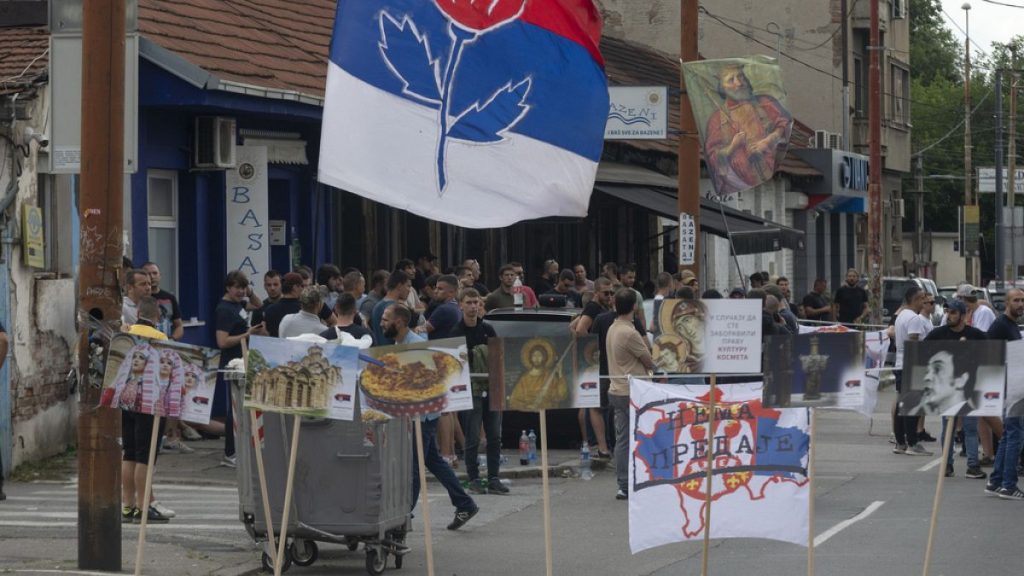The closure of five parallel institutions working with the ethnic Serb minority in Kosovo has raised tensions with neighbouring Serbia. This move was confirmed by Kosovo’s Minister of Local Administration, Elbert Krasniqi, who stated that these institutions violated Kosovo’s constitution and laws. The United States has expressed concern over this action, noting its negative impact on the ethnic Serb community and other minority groups in Kosovo. The relationship between Kosovo and Serbia has been tense, despite ongoing talks facilitated by the European Union. Previous agreements reached between Serbian President Aleksandar Vucic and Kosovar Prime Minister Albin Kurti have failed to make progress.
The Kosovo-Serbia relationship remains strained, with recent incidents adding to the tensions. Last September, a shootout between masked Serb gunmen and Kosovo police left four people dead, further complicating the situation. The EU and the US have urged both sides to implement agreements made by Vucic and Kurti last year. Pristina’s plan to open the bridge on the Ibar River, which divides Mitrovica, has been met with condemnation from Serbia. The closure of six branches of a Serbia-licensed bank in northern Kosovo earlier this year also led to unrest. Kurti’s government has faced opposition from Western powers over these decisions.
The closure of the parallel institutions in northern Kosovo, where most of the ethnic Serb minority resides, has deepened the divide between the two countries. The Kosovo-Serbia border has seen increased tensions, with the presence of NATO-led peacekeepers intensifying in the region. The upcoming parliamentary elections in Kosovo on 9 February are expected to be a test for Kurti’s government, which won in a landslide victory in 2021. The Serb List, a party supported by Serbs in Kosovo, has called for intervention by a European Union representative to prevent further escalation in the region.
The situation in Kosovo remains fragile, with recent developments adding to the longstanding tensions between Kosovo and Serbia. The failure of normalisation talks facilitated by the EU has created a stalemate in the region. The closure of parallel institutions in northern Kosovo has further strained relations, leading to increased unrest in the area. Kurti’s government has faced criticism from Western powers over its decisions, with ongoing disagreements over issues such as the closure of the Serbia-licensed bank branches in the region.
The closure of parallel institutions in Kosovo has highlighted the ongoing challenges faced by the region in achieving lasting peace and stability. The actions taken by Kosovo authorities have sparked condemnation from Serbia and Western powers, further complicating the situation. The upcoming parliamentary elections in Kosovo will be closely watched as a test of the current government’s ability to navigate the complex political landscape in the region. Despite efforts by the EU and the US to mediate in the conflict, tensions between Kosovo and Serbia continue to simmer, with no clear resolution in sight.


